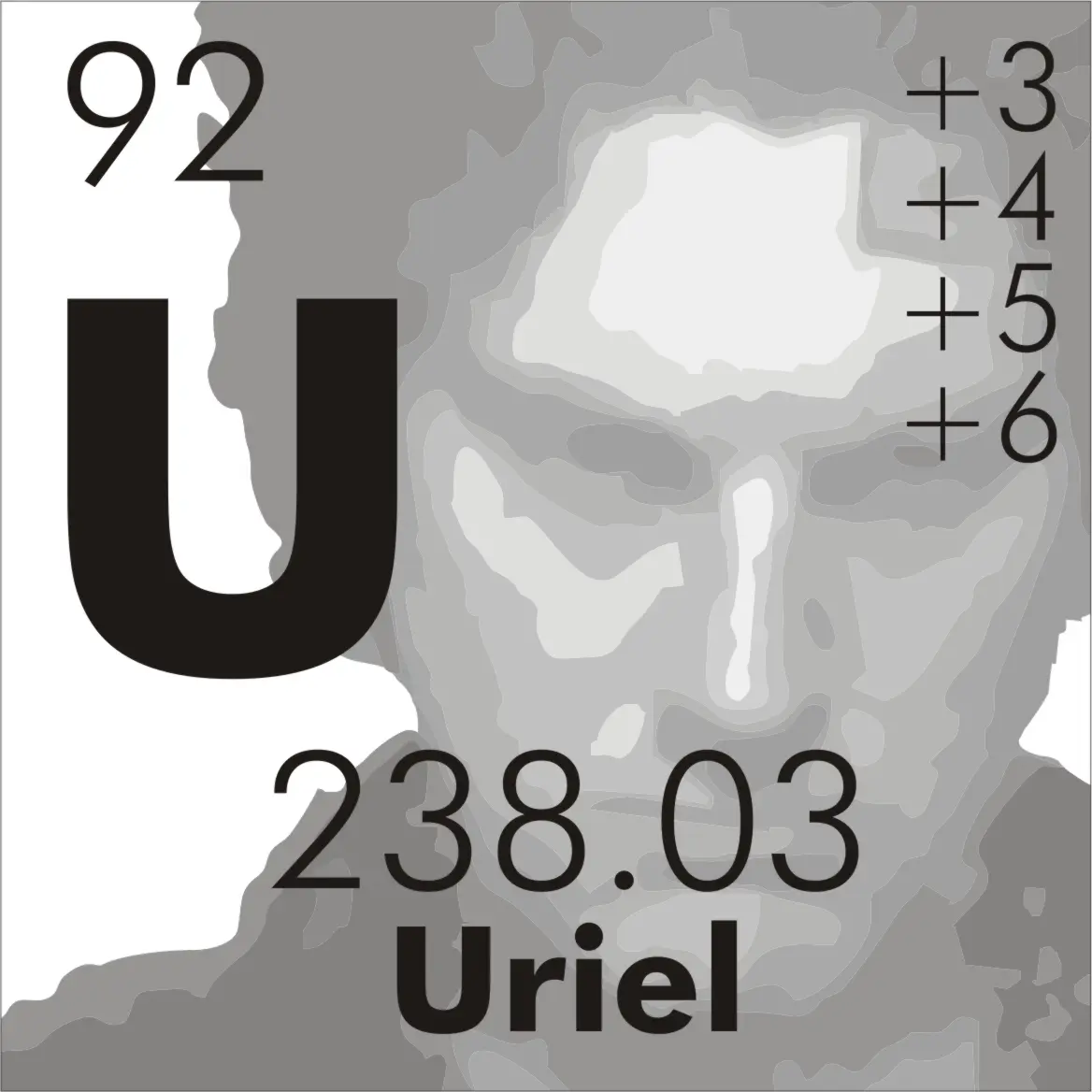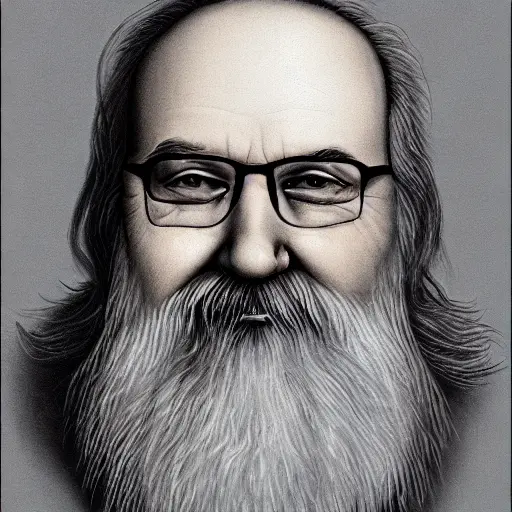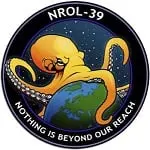I find it odd that when filling out a form that asked me what my religion is one of the choices is Atheist.
What now? That is the that opposite of religion.
Atheism is a religion the same way bald is a hair color.
I told a religious buddy of mine that atheism is a religion the same way “off” is a TV channel. He struggled to comprehend how that’s even possible lol
Thanks; I’m stealing that!
Lol
Philosophically, that’s true. But I understand putting it in the religion column for the purpose of statistics. And ‘none’ and ‘atheist’ are two different possible answers. You can have no religion but believe very fervently in a god of your own conception.
That sounds more like “Other” than “None”.
Why? If you worship a god but don’t subscribe to any dogma, accept any scripture or listen to any religious authority, you have no religion. You’re just a theist.
Why? If you worship a god but don’t subscribe to any dogma, accept any scripture or listen to any religious authority, you have no religion. You’re just a theist.
Except atheism is literally a lack of belief in a god or deity. If you believe in some type of deity, you’re not an atheist. by default.Edit: I missread that. Sorry. Too much coffee and not enough sleep can cause halicuinationsThat was my point.
I guess it depends on your definition of religion. To me, it sounds like a personal religion, even if just one person believes in it. There are any number of religions too small to be included in their list, probably, so they should have an “Other” option, and that seems like the best fit for someone who has a personal set of religious beliefs that do not align with a listed religion.
Or you could just keep it how it’s always been for the purposes of easy tabulation.
I suspect Satanists and others on the left hand path would disagree but I agree you’re functionally correct
I would suggest that various flavors of Satanism have a dogma, and more than one version has scriptures, be they LaVey’s book or the Satanic Temple’s tenets.
I can understand why the Satanic Bible might look like dogma, I don’t agree that it is. And religions like the Setians specifically don’t have any dogma.
I think your point generally holds true largely due to the reality of the world, in principle and philosophy though, totally possible to find counter examples.
I like the idea of putting “none.” I’m gonna start doing that instead of atheist.
Wouldn’t that be an agnostic?
Wouldn’t what be an agnostic? “None” for religion? No, as I said, you can not adhere to any religion but still have a devout belief in a god.
Humans are so complicated
True. And unfortunately, things sometimes have to be simplified for the purposes of statistics.
Honestly, I would rather something like a census have an accurate count of atheists than leave it off the form because it isn’t technically correct to call it a religion.
No, agnosticism is more about the fact that God cannot be proven or disproven.
As for atheism being a religious choice: that’s exactly what it is, it’s a choice to not believe in any religion.
If you and I met on the street, and I were to ask you what your religion is, how would you answer me?
(My guess is you’d say you are an atheist. Same as that dropdown is asking you what your religion is.)
You can really go down a pretty deep rabbit hole here.
Strictly speaking, atheism is the lack of a belief in a god or gods. A-without, theism-belief in god(s)
There are religions out there that don’t have a figure you can easily identify as a god, certain types of Buddhism for example, and so you wouldn’t necessarily be wrong in calling followers of those religions “atheists”
But that’s of course somewhat at odds with how we normally use the term atheism, and them prevent confusion we’d normally refer to these as “non-theistic religions” instead of “atheistic religions”
You can also get into the weeds about what even counts as a god, for example, certain types of taoism/daoism don’t really have any particular god-like figures, but they do have the tao/dao (roughly translating to “path” sort of a natural order the the universe that you should try to be in sync with.) Is the dao a god? It’s certainly not a personal god, something you can pray to and expect to get an answer back from, or that can/will intervene in the universe, it just sort of is and you’re either on the path or you’re not. You could certainly argue that it is a god, if an impersonal one, but it’s definitely not what most people would think of as a god.
You can also have religions that don’t really have anything they’d identify as a “god” but might have other lesser supernatural entities, things like spirits, demons, angels, ghosts, fairies, djinn, etc.
There’s also UFO religions, where aliens are the primary figures and often a lot of their supernatural abilities might be explained away as just very advanced science is centuries beyond our own capabilities.
Going the other direction, you could theoretically have someone who believes that there is some sort of god out there, but makes no attempt to pray to them, worship them, doesn’t take part in any sort of ritual or culture having to do with that belief, and pretty much just acknowledges that the god exists but that its existence has no particular impact on that person’s life or the universe in general. You could very well call that person a non-religious theist. Many deists would fall into this sort of category.
Something I wish got a little more attention in these sorts of discussions is ignosticism/igtheism/theological noncognitivism, which is the camp I put myself into when I’m feeling really nitpicky, and I like to sum up as:
Theism: I believe that there is a god or gods
Atheism: I do not believe that there are any gods
Agnosticism: I’m not sure if there is a god, and maybe we can’t ever know for sure
Ignosticism: What the fuck do you people even mean by “god.” No one has come up with a clear definition yet so this argument is pointless.
If you asked me what my religion is, I would answer that you have already pre-supposed that I have one. Even though I would know what you’re actually asking, I would answer that way to bring more popularity to the idea that not having a religion is normal. Yeah I know, I’m fun at parties.
Whenever I’ve been asked I always say no religion
I would say I don’t have one. Atheism is not a religion it is a description of a single attribute, lack of belief in any gods. People seem to think it means a lot more than it does.
No. Agnostic is not going either way. Atheism is a faith, because you deny the existence of a god without proof, just as theists claim its existence without proof.
Source: I’m an agnostic
I strongly disagree. Atheism is explicit lack of faith.
For all practical purposes, an atheist thinks that without evidence, it’s safe to assume that there’s no god or gods.
Would you say that you’re genuinely completely agnostic in relation to every single religion that has ever existed, even the joke religions (like the flying spaghetti monster, etc)?
This is a misunderstanding of atheism.
This is my view on religion:
I don’t believe in your imaginary friend; but don’t feel special, I don’t believe in anyone else’s imaginary friend either.
Oh, I don’t believe either, I just don’t assert either way. No proof either way. If you choose to believe the absence, you are believing, not knowing. Atheism is rather unscientific, while agnosticism is quite science compatible. Questioning is what advances knowledge.
Not really, I don’t believe in god’s the same way I don’t believe in psychic clowns.
You’re using the modified definition of “agnostic” that believers favor. We have no reason to accept that.
“Agnostic” literally means “I don’t know.” “Atheist” means “I don’t believe.” I don’t know that gods are real, and I have no reason to believe they do.
No faith required.
The moment you use believe you are in faith territory. Agnostics simply say that having no proof either way, we choose not to believe.
Right. I don’t believe is my position as an atheist. I don’t know is why.
How is this so difficult for you?
Atheism is not a religion or worldview.
Atheism is the lack of a belief in a god or God’s.
Many atheists including myself adhere to the statement of simply being unconvinced that there is a God or having no credible evidence to indicate a God’s existence.
Maybe the form we were filling out legitimately needed that information but typically outside of a very specific set of data. I don’t see why any form would ever ask you what your religion or lack of religion might be.
In the medical world plenty of religions forbid certain things… like blood transfusions. I can’t really think of other places but I’m sure there are other legitimate use cases.
But I usually just trike out stuff that is irrelevant. If they seem it relevant they can press the issue and explain why.
Surely atheism is the belief in the lack of a god. Agnosticism is the lack of belief in a god.
Sorta, break down the roots of the words. Atheists activly deny that there is are gods (anti-theism), Agnostics (a-gnostic) are those who dont know, are unconvinced or those who simply dont care. If you really want to be pedantic (annoy your religious friends), point out that most theists are also atheists in a sense as they deny all gods, except for their own.
Exactly. Lack of belief in gods is not the same as actively denying that there are gods.
The issue is that in conversation its hard for theists to tell the difference between the two. To them it dosen’t matter if I say “I think your wrong” or “I simply dont care”, a lot of them will see someone who needs to be “saved”. A non-zero number of them will be very annoying about that or be obstructive because of it, so its best to handle all religion based conversations with kid-gloves.
Sure. I was just trying to make a slightly pedantic joke to mechoman444.
Atheists activly deny that there is are gods (anti-theism), Agnostics (a-gnostic)
Wild to me that you would put these so close. A-theist, as in “not a theist”, you got it right with gnosticism
The etymology of the word through French, Latin, and to Greek all mean that, too, “godless”, not “against god”
Atheism is, in point if fact, a world view.
There is a world. You have a perspective on that world. The assumptions you make and the things you believe, rational and irrational, are a world view. The concept that there is (or is not) credible evidence that gods, or planets, or whatever fundamental facets of existence, imaginary or otherwise, are either a world view themselves or are deeply rooted in your world view.
Q: does your world include unicorns? A: i don’t know.
The answer stems from having a world view that does not categorically include nor exclude unicorns. But more to the point, when answering questions like:
Q: what is most likely the source of existence? A: <anything you damned well please>
The answer, if actually responding to the question, is a world view, or deeply tied to a world view.
As to forms: forms are often limiting and don’t include information we consider relevant, or do include information we consider irrelevant. So it goes. In any case, they would ask that information precisely because world views provide broad but effective indicators about an individual. Knowing that a large incoming group of hotel guests is Christian, for example, can be a useful metric, because you’ll know that your hotel will make above-average pay-to-watch porn sales that weekend.
It is NOT a world view for the simple, basic, fundamental fact, that not all atheists believe the same thing.
Much, much less congruent than even “Christian”. 'Not Christian" is also not a world view, for the same fucking reason, numpty.
Then, in conversation regarding atheists, I shall heretofore say “atheistic world view”, rather than calling atheism a world view.
Just using Google ai. Think before you speak.
world view: a particular philosophy of life or conception of the world. “I have broadened my worldview by experiencing a whole new culture”
Atheism: disbelief or lack of belief in the existence of God or gods.
Atheism is not a worldview in the sense that it is a lack of belief in gods, and does not provide a comprehensive view of the world. However, many atheists tend to have a worldview that includes empiricist, positivist, or materialist beliefs, and a strong belief in science. This worldview is sometimes called “scientism”.
Atheism is the rejection of the idea that gods exist, and is not a belief system that answers other questions about a person’s beliefs. Atheists typically believe that the existence of gods is highly improbable, and that there is no persuasive evidence to support the belief.
Atheism is different from identifying as an atheist. While most atheists hold an atheistic worldview, not all of them do. In fact, only about half of those who hold an atheistic worldview identify as atheists.
I did say “or are deeply rooted on a world view.”
world view: a particular philosophy of life or conception of the world. “I have broadened my worldview by experiencing a whole new culture”
Atheism: disbelief or lack of belief in the existence of God or gods.
Disbelief is a conception. By nature of the topic, it’s a conception of the world. If someone were to say “I don’t believe in black holes,” that is by nature a conception of the world. One might reference it as merely an aspect of the world view, but it’s still an atheistic (or theistic, or black-holist or anti blackholist) world view.
An atheistic world view doesn’t mean atheism is what the world view is about, it means that by nature, the view excludes gods. Most people, for example, adhere to a non-unicornist world view.
I lack a belief in a god or God’s. That is not a world view.
However my world view stems from human secularism. One does not have to be an atheist to be a human secularist.
Lacking in particular belief does not define me as a whole person.
If you don’t believe in unicorns that doesn’t make you a “ununicornist”.
In the same sense not believing in God doesn’t necessarily make me an atheist.
But more importantly you’re not using the words you’re using correctly which is why I included the definitions or the concepts you’re missing. I can tell you simply ignore those.
Simply because it’s a commons, and I like that, I’m going to use definitions from Wikipedia.
I think we differ on what a world view is. Secular Humanism is, to me, more accurately described as Wikipedia describes it - a philosophy, belief, or life stance. These have to do with what you identify with, or values and ideologies you live by. And yes, secular humanists need not be atheist.
A world view is much more broad than a philosophy, belief, or stance, or the having or not having of any particular belief.
So yes, atheism is not a world view. But one can have an atheistic world view, without atheism being a world view. The world view and the individual who holds it are not defined in total by any particular facet of that world view, any more than “a brown-haired person” or “a person who has no cats” are complete descriptors for any single individual.
So “an atheistic world view” simply references one of a large number of world views, all of which fundamentally lack a belief in gods.
Yes, lacking in a particular belief does not define you as a whole person. I would not expect that it did, even if you held atheism as a belief, as in the less broad senses of atheism as defined on Wikipedia.
If I don’t believe in unicorns, it totally makes me a non-unicornist, which is clearly only relevant when discussion or actions come up that involve unicorns, like when I’m posting in a non-unicornist or unicornist context. But it doesn’t necessarily make me an anti-unicornist.
Atheist is tangential to religion, you have religious theists or atheists as religion is about a system of philosophy and ethics while theism is about belief in gods.
Irreligious, ‘none’ or ‘does not apply’ might be better.
I appreciate the surveys that just say “doesn’t apply”.
Atheist is not a statement about your religion at all. I’m also an atheist and my ‘religion’ is basically secular humanist. Yours could be none, Unitarian Universalist, Buddhist, secular humanist, or any others that are compatible.
I don’t intend this to be harsh or negative but I don’t know how to phrase this nicely;
Secular Humanism is a philosophy, not a religion. Religions are faith-based while philosophies are based in some logical argumentation. The muddling of religion with philosophy linguistically serves only to tarnish philosophy and lend undue credence to religion. That language is so flexible can be beneficial but it can equally be detrimental when used like this.
In Iceland the beurocratic term for religion is “life opinion association”. You can give your tax money to the secular humanist guys that do marriage ceremonies etc.
- I put religion in quotes to try to appease this take.
- You are being exceedingly literal and selective in your definition of religion.
- Ceding all rights to the word ‘religion’ to the xtian fundamentalists is not a good strategy.
- Your extreme position limits your ability to bridge with others which also limits your ability to affect change.
- I’ve had my ‘militant atheist’ phase and shared your inflexibility in the past. It wasn’t healthy for me and it wasn’t helpful for anyone.
I don’t think there is anything “militant atheist” in the post you replied to.
I also consider myself a secular humanist, but would never describe myself as religious.
I think that normalising not having a religion would help to bring tolerance for people who have differing opinions, while calling secular humanist a religious view may reinforce a bias in some people that “you can’t be good without religion”.
- Thanks.
- The differentiation I used wasn’t my own words, I got it from here, I figured I shouldn’t go off just my own take. I suppose I should have specified that from the beginning.
- I suppose there’s a case to be made for that.
- I don’t see how you’ve got that I have an extreme position from ‘Religions are faith-based while philosophies are based in some logical argumentation.’
- Noted. I suppose I could try to find something not abhorrent about faith. I’ve long since stopped being angry about it but I’m still very much an Antitheist.
Regarding the last point, I’m not at all religious, but I’ve accepted that even from a purely logical and scientific standpoint, you have to just accept some things on faith. Our capacity for knowing is limited, there are certain “unknowable” things that we just have to accept.
The easiest example of this is what’s going on in another person’s head. You have to take on faith that the things they’re saying to you is what’s actually going on. More broadly, a lot of the things about the physical universe and the fact that it exists at all are things that, at least with our current level of science, we just can’t know. We can make best guesses, but from there it’s a faith.
I’d say faith is only a bad thing when it’s used to make you so things you wouldn’t want to do otherwise. The more I examine the church specifically, the more I realize it’s not the faith based approach to understanding that I have issues with, it’s the leaders using that to manipulate. Faith is, and should be, a very personal thing not subject to some governing body with very real biases and objectives.
I don’t think that’s necessarily the case. We can determine to some degree what’s going on in the mind of other people without having faith in their self-report, it’s just impractical to do to everyone or frequently; FMRI can show us their brain activity and we already have a reasonable sense of what the different bits of brain do. Would we be able to get fine specifics of their thoughts from it? No, not yet but given that out ability to detect and measure has a general tendency to improve with time I believe that it is a ‘yet’ and not an ‘if’ barring Extinction Level Events.
Could you elaborate on the second point? I don’t see cause to have faith regarding that subject. We don’t have all the knowledge about the subject but neither would we know, for example, the exact ordering of a deck of cards immediately after a thorough shuffle. We know enough that we’re not going to see an Ace of Fives if we shuffled a standard deck and we’ll be able to determine the order they are in if we pay attention.
Most of the faithful that I know personally aren’t involved with a governing body of their faith. They still use it to be bigots. When pressing them on the issue I’ve yet to get a response as to why they’re bigots other than their faith. They have, or at least are aware of, secular reasons to be good and kind but not when being bigoted in some ways (they have secular reasons for the kinds of bigotry their faith opposes).
I see faith and religion confused a lot. I’m pretty anti-religious, but I find myself fairly spiritual. There exist known, and knowable, things such as the number of cards and their values in a standard deck. We can know there is no fifth ace in the deck, and so we can know you will never pull a fifth ace.
Unknowables, however, also exist. I already listed the example of the specifics of what goes on in another person’s head, which - fair, you can make inferences and guesses, but we’re still not able to know for certain what someone else is thinking. A more esoteric example for anther things in this category would be something like how a 4th spatial dimension would look. We, with our current biology, can’t actually KNOW this. We can approximate it, and even develop an intuition, but we’re simply not equipped with hardware to allow us to interpret that information. Or, that the sun will rise tomorrow. It’s always happened so far, but I have nothing guaranteeing that it will happen. In fact, we know as a point of certainty that it will, one day, not rise. We have pinned down a timeframe we think this death will occur in, but we can’t KNOW.
We still engage with each day as if the sun WILL come up. And there may be overwhelming evidence that it will, but it may not. Similarly, the old thought experiment of us being in a simulation. Practically, we can’t really know whether or not that’s the case, but all but the most adamant about simulation theory are going to act as if it’s not.
To wrap it all back around, about militant atheism and the like - my view is that we all act on some degree of faith, and some people really glom onto a worldview that helps to explain our origins and meanings of our lives. And there’s nothing wrong with that. The issues only start to arise when one person or groups faith starts to impress itself upon others. I don’t care, in the slightest, what someone believes, it’s only when they start asserting that their faith is fact, and when they start using said faith to justify mistreating anyone else.
Edit: to address the thing about bigotry, I really don’t think having some notion of Faith has much to do at all with one being a bigot. Bigotry tends to come from exclusion, because of fear and not understanding. This is why I have a problem with most RELIGIONS. Religions take your faith (i really like the term spirituality more here), something I think should be inherently personal, and dogmatize it, use it to form an in group and an out group, and use it as justification for the subjugation of the out group. Nothing to do with the faith/spirituality of the individual, a LOT to do with the biases of whatever leadership your in group has.
I see faith and religion confused a lot.
Fair enough, I have been using them interchangeably. I suppose given your position that’s inaccurate. Our positions differ quite a bit, I’m an antitheist and materialist/physicalist.
which - fair, you can make inferences and guesses, but we’re still not able to know for certain what someone else is thinking.
My point here is just the opposite. It isn’t inferences or guesses, we can tell from brain activity that what’s going on falls within a certain range. We have yet to refine this ability to tell detailed specifics but we’re not guessing A * B = G, we can use our modern tools and understanding to determine that G is within the range of D through J. Prior to the development of the current tools and methods we had a wider range and prior to the development of any such tools we were guessing and making inferences.
Heisenberg’s Uncertainty Principle would be an example I’d agree to of something unknownable: the set of both the precise location and momentum of a particle. However as of yet I am unaware of any reason or mechanism by which this unknowable is impactful to any sapient entity… except those specifically studying it.
As-is I find the unknowables that I am aware of, the Uncertainty Principle, whether or not we’re in a simulation, and so on so be inconsequential on the scale we operate on. We have a perceived reality that behaves according to rules that are determinable and practical utility can be derived from determining them.
my view is that we all act on some degree of faith
I don’t think I can contest this. At least not at the moment after having had a long day. In any case I think this point is where we likely differ quite a lot; I strive to take nothing on faith. To whichever extent that I do I want it to be less or at least driven past the point of functional irrelevance to the operation of my life.
Nothing to do with the faith/spirituality of the individual, a LOT to do with the biases of whatever leadership your in group has.
I suppose the authors of their scripture would count even though they have limited relation to living leaders of their religion.
Believing things based on the best evidence you have available (someone told you what they’re thinking) and believing things with no credible evidence (religion) are completely different things and one being a good idea does not mean the other one is.
Wow, I just read about secular humanism, and it seems to be pretty much exactly how I feel about things. The human race could, through science, understanding, and cooperation, solve most of the problems that we are faced with. I like that.
I never thought of that; that’s interesting.
Just put Pastafarianism
Depends if you define religion as ‘act of worship’, or ‘belief aystem’, I guess. Bhuddism would fail the first, but not the second.
I usually think of religion as the belief in some sort of God or religious figure whether it’s the Christian God or Vishnu or Odin or whatever it seems that it’s more complicated than I had considered previously.
Yes, that’s fair - depends on how the definition of the survey is worded. So something like satanism wouldn’t be a religion to you? I get it confused with the church of Satan, but one or the other isn’t about the worship of Satan. My grasp of Buddhism is it’s about a belief system, one that believes following his example that leads to a better life/ inner peace, rather than straight worship, or asking him to use divine providence to make ones life better.
The closest I have to religion is naturalist, which is to say based on the data I have, I can’t find any evidence anywhere of supernatural effects, and while I haven’t personally done the looking, the scientific consensus is that there’s nothing, even when it comes to religious investigators actively looking for evidence of the stuff they expect to see.
To date, there are some pretty high bounties on evidence of various kinds of spooky shit that remain unclaimed.
Of course, I don’t know this to be the case. The simulation hypothesis has not been ruled out, which would allow for effects we cannot detect. It doesn’t stop me from worshiping my cat. (Cat-huffing. It’s a thing.) And it raises questions whether we are the same person when we wake up after non-REM sleep, or a new iteration of the identity. (The transporter paradox). But so far, the most likely explanation is we’re material girls living in a material world.
In my opinion, if somebody states that there’s something spooky going on, then the onus is on them to provide evidence and prove what they’re saying. I don’t have to do anything.
“isn’t it spooky how all the evidence just ups and dissapppears when you look at it?!”
That experiment made my brain hurt
Sorry.
Lol 😂
Don’t we have spooky quarks? I know we have strange ones, and charm quarks… Feels like we should have spooky quarks.
We have quantum entanglement, basically magic
Anything not fully understood by science is magic
Yes, and since we’ll never have understood everything there will always be magic :)
We do have spooky action at a distance
its because if it was just none christians would count it as people who are just undecided and haven’t accepted jesus.
Same. Goes to show how much thought and care has been put into it.
Since ‘atheism’ means ‘without religion’ it’s the same as putting in “none.”
imho
In my country we have “Konfessionslos” -> non-denominational.
Non-denominational is still religious/spiritual here, like Christians that aren’t affiliated with a specific church.
Hm weird, I left religion and now I am labeled as “Konfessionslos”. Dont pay anything to a church or anything that has to do with this fairytale story.
It could be that atheiests are lumped in with people who aren’t members of an organized religion where you live.
It’s interesting.
Does the word literally mean “confessionless”?
Could it literally mean either a person that doesn’t take part in the Christian tradition of Confession? Or maybe a person that doesn’t profess any beliefs?
There are different categories. I consider myself agnostic atheist. That pretty much means I don’t really know, but all this man made stuff is horse shit.
Atheism is a choice; where I choose evidence and logic.
To me it is basically:
I don’t believe in your imaginary friend; but don’t feel special, I don’t believe in anyone else’s imaginary friend either.
I once told somebody that if you want to believe in a magic man in the sky, then go for it, but don’t expect me to.
It depends how you define “religion”
Atheism is a belief. You have a belief that there is no supernatural being or power. A lack of belief in anything is agnosticism, not atheism.
If you define religion as a belief (I would) then there you go. If it’s a set of practices and dogmas, then technically Christianity isn’t a religion and it’s denominations are as they practice things differently and some have added dogmas or different interpretations, even though they believe in the same God and have the same fundamentals.
Then I’d have to assume your religion is also not-believing-in-unicorns and round-earthism, as well as humans-need-oxygenism.
Agnosticism is not a lack of belief, it is a stance that one doesn’t know whether a god exists or not. Frequently, the “belief” would be that it’s impossible to know, which, by your definition, would also make it a religion.
The argument does not hold up.
You’re correct by your first paragraph, though.
Atheism is a belief
No, it’s not. Theism the belief in a higher power, put the prefix a- on it and you get “doesn’t believe in a higher power”
Atheism is literally the lack of belief. It doesn’t make a positive statement that there’s not something there, it just means they don’t believe
The lack of belief is agnosticism. Atheists believe that there is no god, which is an active belief
Nope agnosticism is the lack of knowledge.
It’s two different and somewhat independent axes.
You’re just wrong, as I explained
It’s amazing how often Jesus freaks will assert they know about other groups and then get their information 110% wrong because they only learned what their in group says about them
In your opinion, is there a god or god(s)?
Nice irrelevant question, I’ll answer it just to show that I know what I’m talking about because I’m actually part of the group being discussed, not some outsider pinning definitions on things incorrectly:
If there is/are they have 0 impact on the world as we interact with it by my own observations so I live as a gnostic atheist, though if any actual proof were ever to show itself I wouldn’t exactly be shocked to find there was something beyond our comprehension out there
So you’re uncertain- This sounds more like what I would refer to as agnosticism
You would only be partially correct, as previously explained
I do not actively believe there is a higher power, so I am atheistic
I am open to the potential, so a fairly accurate simple description would be “agnostic atheist”, or “someone who doesn’t know whether or not there’s a higher power and lives assuming there is not”
You’ll notice that despite atheist being in there I’ve not only not made the positive claim that there’s no god, I’m even open to the idea of something of that nature existing, because that’s not what atheism is about
















